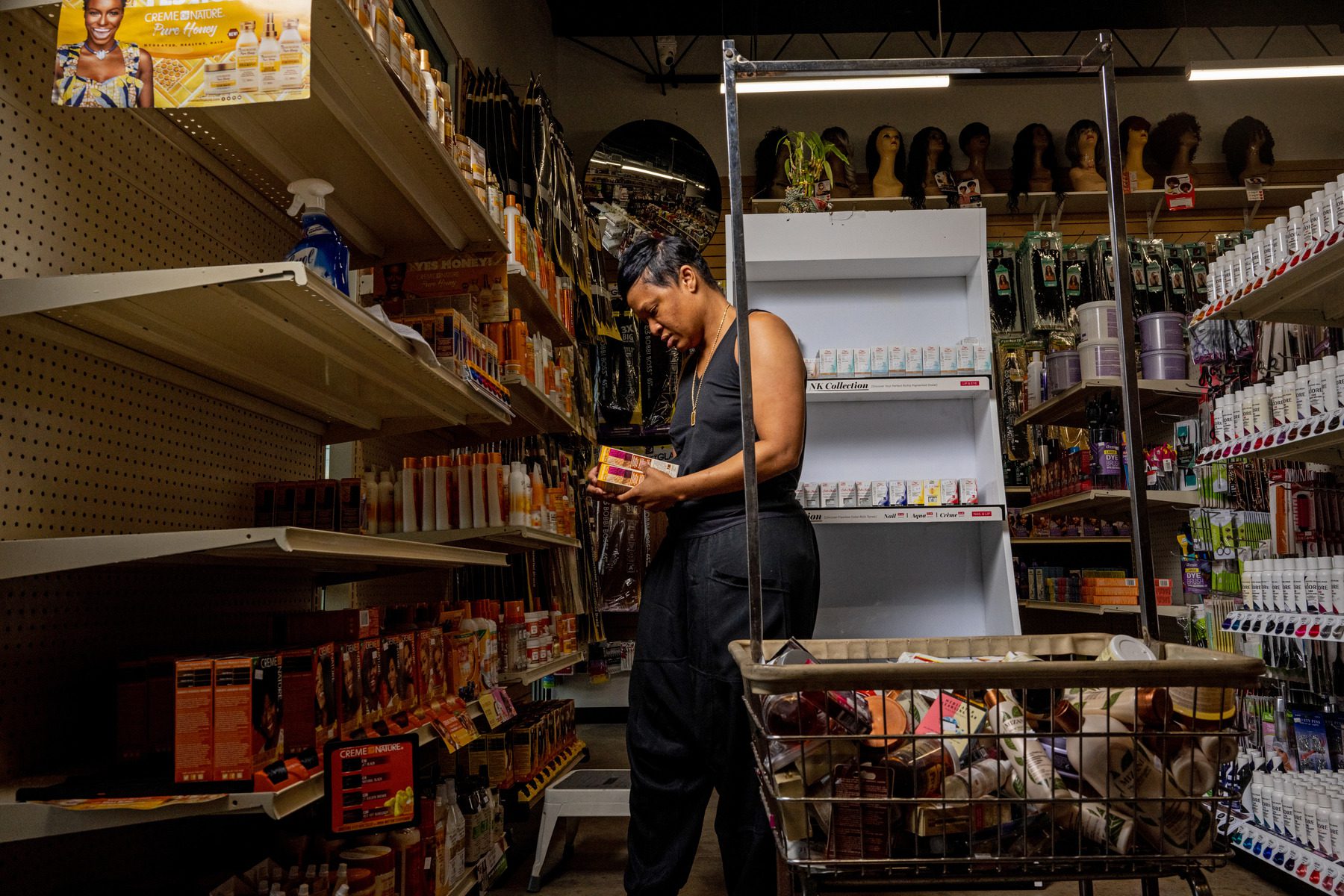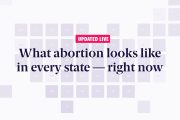We’re answering the “how” and “why” of abortion news. Subscribe to our daily newsletter.
States enacting abortion bans are also “economically disempowering workers” through other channels, according to an Economic Policy Institute (EPI) report released Wednesday. The study analyzed five indicators of economic security — minimum wage, unionization, unemployment insurance, Medicaid expansion and incarceration — and found strong correlations with state-level abortion access.
“A big key of this report is that while abortion is often framed as this cultural, religious, personal issue, it is strongly also an economic issue,” said Asha Banerjee, an economic analyst and author of the report. “These bans are posing an extremely concerning economic policy challenge that policymakers, lawmakers and advocates need to be focusing on.”
After the Supreme Court overturned Roe v. Wade in June 2022, the power to decide the legality of abortion was transferred to the states. In the following months, many states passed legislation, strengthening, weakening or removing entirely the right to have an abortion. Banerjee identified 26 states with abortion restrictions and bans and 24 states, as well as Washington D.C., with very few restrictions or limits.
The report ultimately argues that abortion access is intertwined with economic progress and mobility. According to the EPI analysis, states with abortion restrictions or total bans have on average lower minimum wages, unionization levels half as high as those in abortion-protected states, fewer unemployed people receiving unemployment insurance, lower rates of Medicaid expansion and an incarceration rate 1.5 times that of the abortion-protected states.
Banerjee said that abortion access followed the same pattern as all five economic security metrics. The states that banned or are attempting to ban abortion are the same ones that are “economically disempowering people” across many economic channels, she said.
-
Read The Latest:
-
Read The Latest: What abortion looks like in every state — right now
“At its core, these bans are not about motherhood, families and children — a lot of the other reasons you tend to hear,” Banerjee said. “But these are about economic control, subjugation, disempowerment. Abortion restrictions are another economic policy that states are undertaking to disempower workers. … These are deliberate and intentional policy choices.”
Banerjee acknowledged that this report is not the first to make an economic argument for abortion access. One month before the Supreme Court overturned Roe v. Wade last year, Treasury Secretary Janet Yellen argued that restricting abortion access would hurt the U.S. economy. In her testimony to the Senate Banking Committee in May 2022, Yellen said reproductive health care, including abortion, helped increase labor force participation, enabled many women to finish school and increased women’s overall earning potential.
“I believe eliminating the right of women to make decisions about when and whether to have children would have very damaging effects on the economy and set women back decades,” Yellen told the committee.
Elspeth Wilson, assistant professor of government at Franklin & Marshall College, said the connection between economic inequality and abortion goes all the way back to the establishment of Roe v. Wade. After Roe became the law of the land in 1973, the Supreme Court heard a series of cases related to the “defunding” of abortions, Wilson said. Suits were brought over state legislation that ensured abortion was not included in Medicaid plans — later made moot by Congress’ passage of the Hyde Amendment, which withdrew all federal funding of abortion under Medicaid. In these cases, Supreme Court Justices Harry Blackmun, William Brennan, Jr., Thurgood Marshall and Ruth Bader Ginsburg all voiced their opinion over the years that poor women — disproportionately women of color — were effectively denied choice by the government.
“I do think abortion is an economic issue, and the intersection with poverty and race and gender in those states are huge factors in the economic disparities noted by the EPI report,” said Wilson, who is also working on a book about reproductive law. “Whether or not a woman can afford to have and raise another child is often the deciding factor in why she seeks to terminate the pregnancy — so the issue is fundamentally economic.”
About half of all people who have abortions are at or below the federal poverty level, according to a 2017 peer-reviewed article published in the American Journal of Public Health. And according to 2019 data from the Centers for Disease Control and Prevention, Black and Hispanic women are more likely to get abortions than any other demographics — disproportionate to their share of the population.
Ethan Struby, assistant professor of economics at Carleton College, underlined the real economic consequences for people that come with all pregnancies and emphasized the importance of the economic dimension.
“Decisions about having children or how many children to have are incredibly impactful on basically every aspect of economic life,” Struby said. “I’m a parent, so I can speak pretty confidently that having even one kid involves figuring out how to pay for what that child needs — health care, food, child care and education.”
Paula Cole, an economist at the University of Denver, argued that abortion bans won’t just economically impact women, but everyone. Future generations will have less economic well-being: More people will rely on Temporary Assistance for Needy Families (TANF), a federal assistance program, food stamps and housing support because they will have a harder time engaging in workplaces that do not support parents.
“Abortion is primarily discussed from this kind of moral, ethical lens, versus thinking about it within that economic context of what this means for people,” said Cole, whose work focuses on the economics of gender, race and caring. “Abortion access is not just a women’s issue. It’s more than that. And it’s going to have an economic impact on communities and future generations and increase the need for government support.”








